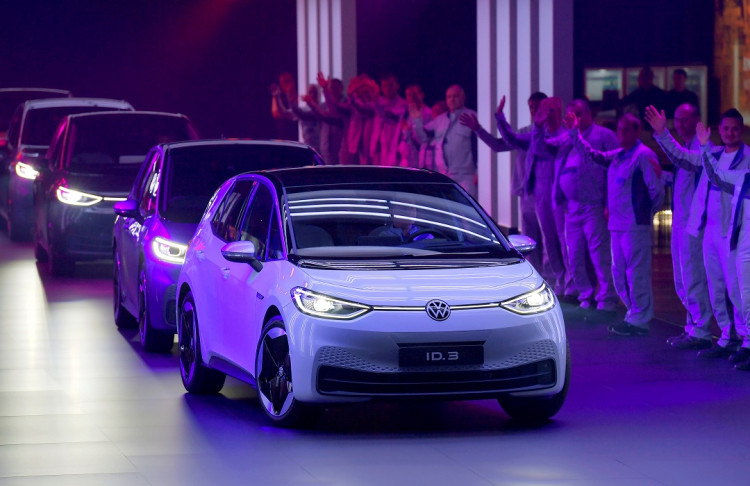Volkswagen Group China, a division of Germany's Volkswagen Group, has announced plans to invest more than $4.4 billion for 2020. The company, along with its Chinese partners, has plans to use around 40 percent of the total investment to help in its shift to electric mobility.
The Beijing-based company, which is currently China's largest brand based on sales, will use close to $2 billion of next year's budget as part of its broader electrification strategy. The company will be retooling two of its major manufacturing plants in China to churn out new electric vehicle models based on its modular electric drive toolkit (MEB).
The budget will go towards retooling the company's facility in Anting under the SAIC-Volkswagen partnership and its facility in Foshan under the FAW-Volkswagen partnership. The group plans to use both facilities to exclusively manufacture different all-electric vehicle models for the Chinese market.
The company plans to fully utilize both facilities' total capacity of 600,000 units next year. Volkswagen revealed that full MEB-vehicle production should be achieved by October next year. The company plans to have a total of 30 locally produced electric models by 2025.
In China, around a fifth of all the vehicles sold are from the Volkswagen Group. The company currently enjoys sales of around 3.14 million vehicles in the Chinese market. Volkswagen Group China's CEO, Dr. Stephan Wöllenstein, mentioned in a statement that the company's strategies are paying off and it is looking forward to further growth in 2020.
The executive added that next year's growth will likely be fueled by its local electric car production, which it expects to increase in scale significantly through its planned investments. Wöllenstein believes that the company's success in China will rely on its focus on electric mobility, with its added goal of becoming net carbon neutral by 2050.
The amount of money required for the company's shift into electric mobility will be significant, as it will need to build its production, infrastructure, and development from the ground up. Volkswagen will, of course, have the advantage of scale, which it can use to weather its inevitable increased operational cost and spending.
Next year's budget will also be used towards achieving the company's other goals, including the optimization of its current model portfolio. Volkswagen Group China had also previously mentioned that it plans to increase spending in developing related technologies, such as autonomous driving, artificial intelligence, and smart cities.
As it stands, Volkswagen Group China already has 14 full-electric models available in the Chinese market. The launch of the new vehicles is apparently just the start of its electric mobility offensive, which it mentioned will go into full speed next year.






